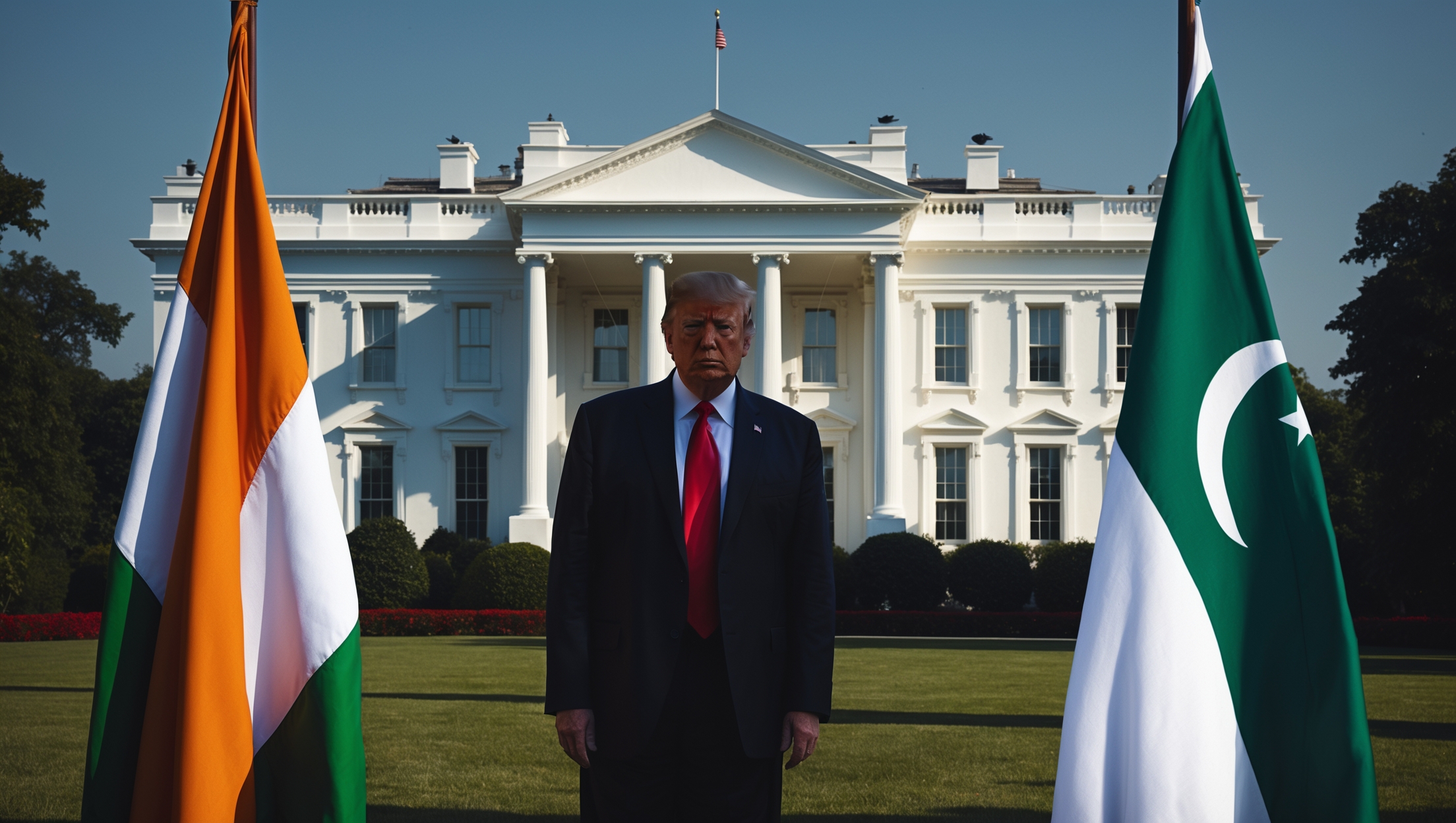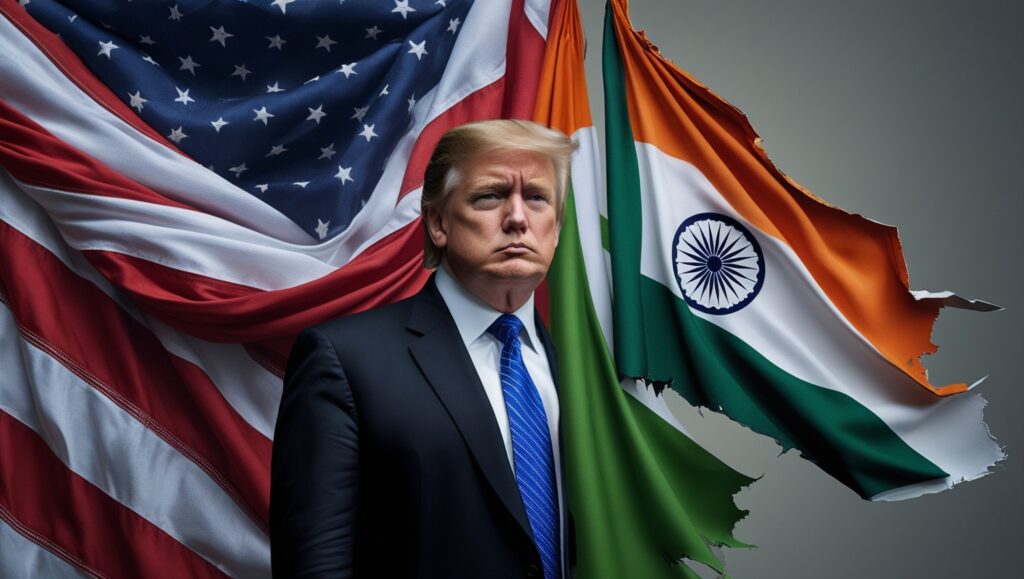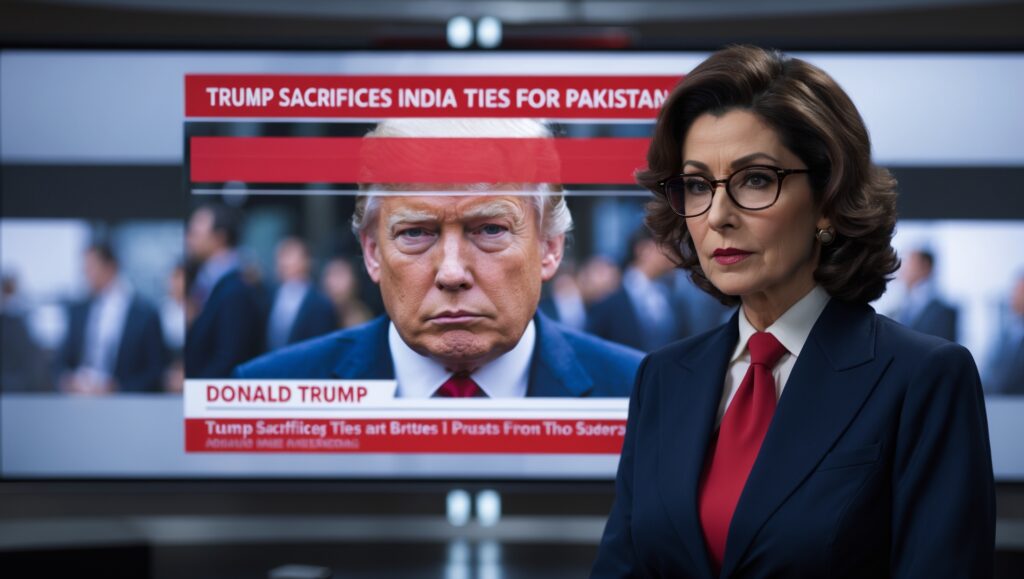Physical Address
304 North Cardinal St.
Dorchester Center, MA 02124
Physical Address
304 North Cardinal St.
Dorchester Center, MA 02124

In a political environment where every action is closely examined and every alliance is analyzed, a recent claim has caused a stir in both the media and diplomatic circles. Jake Sullivan, a former national security advisor, has openly asserted that Donald Trump put his own commercial interests in Pakistan ahead of the strategic alliance with India. In addition to being a startling statement, the headline “Former NSA Accuses Trump of Sacrificing India Ties for Pakistan Business” offers insight into a more profound geopolitical change that may have long term ramifications for international trade, security, and diplomacy.
The integrity of presidential decision making when personal commercial interests are involved, as well as Trump’s foreign policy ambitions, have been hotly debated since this discovery. As the narrative progresses, it is worthwhile to investigate the origins of this charge, the consequences for the relationship between the United States and India, and the larger framework of American involvement in South Asia.

The expression alludes to a public declaration made by Jake Sullivan, President Joe Biden’s National Security Advisor. In an open interview, Sullivan claimed that in order to seek economic opportunities in Pakistan that favored the Trump family, the Trump administration purposefully damaged relations with India, a nation long regarded as a vital partner of the United States. Sullivan claimed that this change was a strategic error that jeopardized U.S. interests in the area in addition to being a betrayal of bipartisan diplomatic efforts.
Both Republican and Democratic administrations, Sullivan underlined, have sought to enhance the U.S. India relationship for decades, acknowledging India’s position as a democratic powerhouse and a check on China’s expanding influence. He maintained that Trump’s self serving turn toward Pakistan undid years of advancement and endangered a vital partnership.
It’s critical to examine the historical background in order to comprehend the seriousness of Sullivan’s charge. Over the past few decades, the relationship between the United States and India has changed dramatically. The two countries have progressively developed an alliance based on shared democratic values, economic interests, and common concerns about regional security, moving from Cold War tensions to post-9/11 collaboration.
A new era of strategic cooperation was heralded by the historic U.S.-India Civil Nuclear Agreement, which was signed under President George W. Bush. Through defense pacts and cooperative efforts in education and technology, the Obama administration strengthened connections even more. The alliance was ready for even more alignment by the time Trump took office, particularly in retaliating against China’s ambitions in the Indo-Pacific.
However, Trump’s tenure introduced unexpected turbulence. His administration imposed steep tariffs on Indian goods, criticized India’s trade practices, and reportedly expressed frustration over India’s continued ties with Russia. These moves strained the relationship and raised questions about the administration’s commitment to long-term strategic goals

Sullivan’s charge rests on the assumption that Trump’s turn toward Pakistan was motivated not by national interest but by personal commercial enterprises. There have been rumors that Trump’s family made investments in rare earths and cryptocurrencies while they were in Pakistan. Allegedly, these endeavors impacted foreign policy choices, resulting in a strengthening of ties between the United States and Pakistan at the expense of India.
Trump allegedly discussed commerce and economic development with Field Marshal Asim Munir, the head of Pakistan’s army, during his July 2025 visit to the White House. Shortly after, Trump promised U.S. support to develop Pakistan’s oil reserves and launched a trade agreement with the country. These events followed a discernible thawing of ties with India, which fueled further conjecture over the reasons behind Trump’s foreign policy decisions.
There are significant strategic ramifications to the claim that Trump jeopardized India-Pakistan relations for business purposes. As a major actor in the Indo-Pacific area, India’s alliance with the United States is essential to preserving equilibrium in the face of China’s expanding power. America’s reputation as a trustworthy ally may be damaged, regional stability could be upset, and China could gain confidence if this partnership were to wane.
Furthermore, India is a crucial partner in fields like cybersecurity, artificial intelligence, and climate change due to its economic and technological prowess. For short-term commercial advantage, alienating such a partner could impede progress on global issues that call for concerted efforts.
On the one hand, Sullivan’s remarks highlight the necessity of openness in foreign policy and the possible abuse of presidential authority. If accurate, the charge highlights the perils of letting private interests guide government policy. It also acts as a warning to upcoming administrations to put long-term partnerships ahead of immediate financial gain.
However, detractors contend that the charge is politically driven and lacks hard proof. The claim is still hypothetical in the absence of official records or concrete evidence of commercial dealings influencing policy. However, the discussion it has generated is worthwhile, leading to a more thorough examination of the process by which foreign policy decisions are made and the individuals who gain from them.

A leader has already been charged with combining personal affairs with national strategy. Similar allegations that commercial interests affected diplomatic decisions have been made against numerous heads of state, ranging from Brazil to Turkey. Although previous American presidents have been scrutinized for conflicts of interest, Sullivan’s charge is notable for its global implications.
The response has been conflicting on a global scale. While Pakistani media has generally praised the renewed interaction, Indian officials have voiced concerns about the cooling of ties. Analysts caution that if China takes advantage of the split between the United States and India, such changes could change the balance of power in South Asia.
What charges did Trump face from the former NSA?
Donald Trump was charged by Jake Sullivan with forgoing strategic relations with India in order to further his own commercial interests in Pakistan.
What makes the U.S.-Indian relationship significant?
India is an important democratic ally with substantial technological and economic prowess. Strong ties between the United States and India support regional stability and serve as a counterbalance to China.
In Pakistan, what sort of economic interests does Trump purportedly have?
There have been reports of involvement in oil development projects, rare earth investments, and cryptocurrency initiatives.
Has the accusation received a response from the Trump administration?
Sullivan’s allegations have not yet received an official response from Trump or his aides.
Could this affect future U.S. foreign policy?
Yes. The accusation may influence how future administrations approach transparency, conflict of interest, and strategic alliances.
More than just a political catchphrase, the title “Former NSA Accuses Trump of Sacrificing India Ties for Pakistan Business” captures the intricate relationship between individual interests and national strategy. Regardless of the veracity of the charge, it has already changed the discourse surrounding U.S. foreign policy and the significance of preserving confidence with strategic partners.
The United States must choose between pursuing short-term possibilities and prioritizing long-term partnerships as global dynamics continue to change. Any change in the delicate balance between India and Pakistan could have far-reaching effects. The globe is currently keeping a careful eye on things to see if diplomacy will win out over making deals.